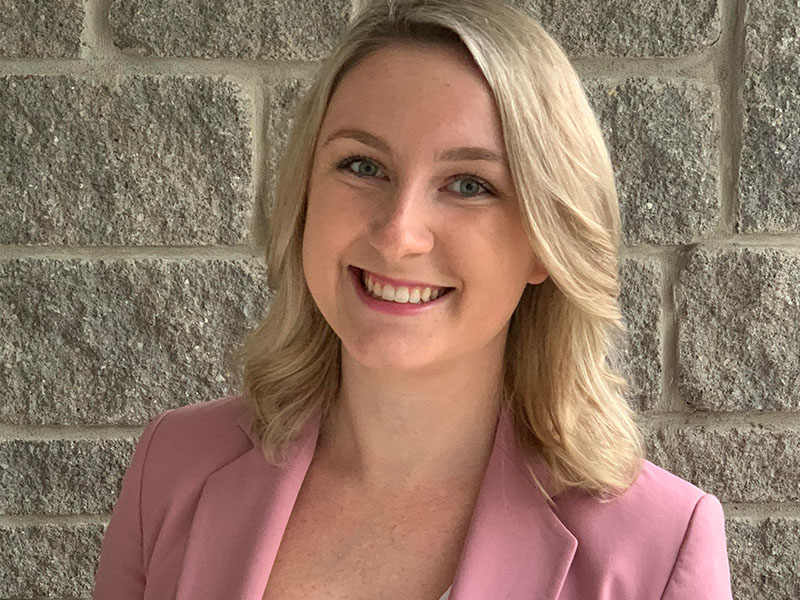Sprott School of Business MBA students support organizations in preparing for the post-COVID workplace
As organizations consider how their teams will work after the COVID-19 pandemic crisis has passed, MBA students at Carleton University’s Sprott School of Business collaborated with some to develop roadmaps for their transition to hybrid work environments.
Through a project in the program’s Managing Teams course, MBA students worked directly with organizations’ team managers to discuss, explore and make recommendations on how their team could effectively combine how they worked prior to, and during, the COVID-19 pandemic to create a new work environment.

“This project was intentionally designed to create a timely and relevant learning experience for the students in the MBA program – that is the impacts of COVID on managing teams,” said Julie Caldwell, the instructor for the course. “And I also wanted to provide value to the managers that they were working with.”
The projects gave the MBA students exposure to the real challenges presented by managers in different types of organizations, including those in government, private consulting, and even a firm based in Abu Dhabi.
“Prior to COVID, how teams functioned, and how managers supported them, was very different than it is now,” added Julie. “And moving forward, once things settle with the pandemic, I believe we will never be fully in-person work teams again. I think we will have a hybrid mix of in-person and virtual teams. This changes the dynamics for managers dramatically.”
The students’ approach to the project included in-depth research on the team’s operations, their strengths and weaknesses, and the opportunities available for them. All of which was used to develop recommendations and an implementation plan which were then presented to the manager for their feedback. Following which the students developed a final, detailed, report with timelines for integration, costs associated with different types of support, effects on key stakeholders and how to’s.

“It was very interesting to think about the post-COVID work environment because no one knows what it will be like,” said Sprott MBA candidate Stefano Panuccio, who worked with Durivage Management Solutions Ltd. “It’s going to be completely different for everyone.”
Kassandra Crawford (MBA/21), who worked with the project team at Fisheries and Oceans Canada, said she appreciated the opportunity to speak with actual team managers and understand some of the real-life challenges they faced.
“It was a great hands-on experience,” Kassandra said. “The skills we learned and the work we did was really critical to our learning because I don’t think we’ll ever see a full return back to in-person work.”

The students’ work was valuable to the managers as well.
Keith Lennon, director of ocean and climate change science at Fisheries and Oceans Canada, said that it was an enjoyable experience that surpassed his expectations.
“It was nice to bring energy into the group and get a different perspective,” he said. “It was also nice to see the perspective on a virtual environment from a younger generation that’s more used to it – it brings a totally different viewpoint especially when you start talking about technology and its uses.”
“It was a very beneficial opportunity for us to examine things from a different perspective. It helped me think differently and have a structured thought process to address certain challenges.”
“They did a good job,” added Francine Durivage, president of Durivage Management Solutions. “They were all very professional and tried to go the extra mile.”